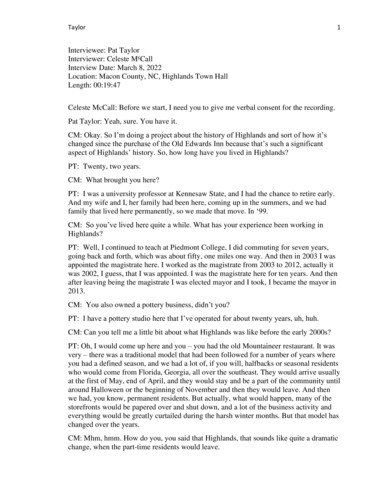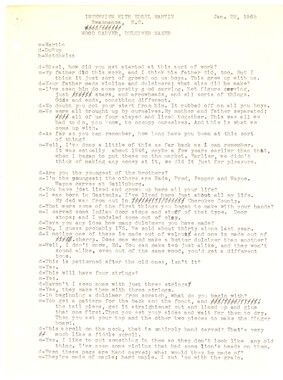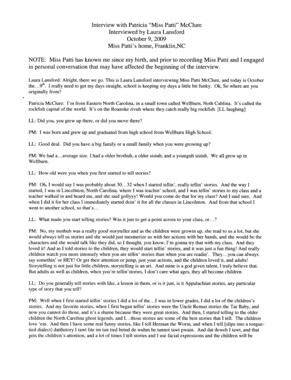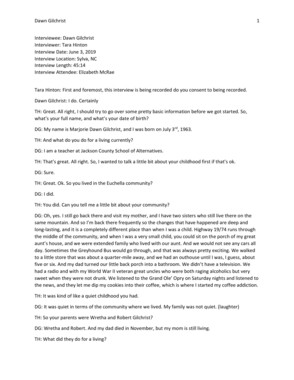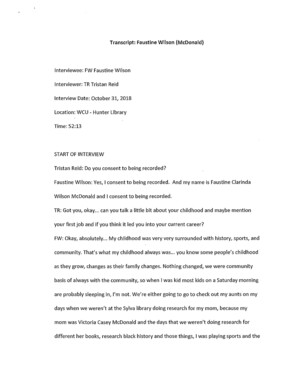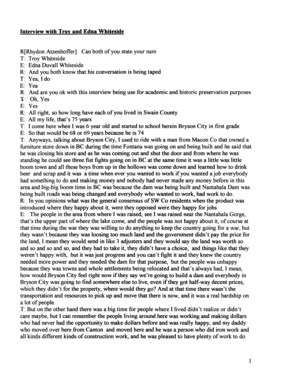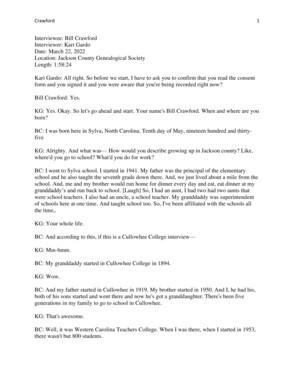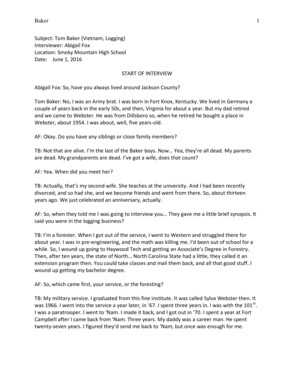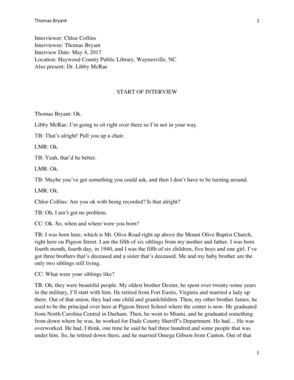Western Carolina University (21)
View all
- Canton Champion Fibre Company (2308)
- Cherokee Traditions (291)
- Civil War in Southern Appalachia (165)
- Craft Revival (1942)
- George Masa Collection (137)
- Great Smoky Mountains - A Park for America (2900)
- Highlights from Western Carolina University (422)
- Horace Kephart (941)
- Journeys Through Jackson (159)
- LGBTQIA+ Archive of Jackson County (85)
- Oral Histories of Western North Carolina (314)
- Picturing Appalachia (6797)
- Stories of Mountain Folk (413)
- Travel Western North Carolina (153)
- Western Carolina University Fine Art Museum Vitreograph Collection (129)
- Western Carolina University Herbarium (92)
- Western Carolina University: Making Memories (738)
- Western Carolina University Publications (2491)
- Western Carolina University Restricted Electronic Theses and Dissertations (146)
- Western North Carolina Regional Maps (71)
- World War II in Southern Appalachia (131)
University of North Carolina Asheville (6)
View all
- Allanstand Cottage Industries (62)
- Appalachian National Park Association (53)
- Bennett, Kelly, 1890-1974 (1463)
- Berry, Walter (76)
- Brasstown Carvers (40)
- Carver, George Washington, 1864?-1943 (26)
- Cathey, Joseph, 1803-1874 (1)
- Champion Fibre Company (233)
- Champion Paper and Fibre Company (297)
- Cherokee Indian Fair Association (16)
- Cherokee Language Program (22)
- Crowe, Amanda (40)
- Edmonston, Thomas Benton, 1842-1907 (7)
- Ensley, A. L. (Abraham Lincoln), 1865-1948 (275)
- Fromer, Irving Rhodes, 1913-1994 (70)
- George Butz (BFS 1907) (46)
- Goodrich, Frances Louisa (120)
- Grant, George Alexander, 1891-1964 (96)
- Heard, Marian Gladys (60)
- Kephart, Calvin, 1883-1969 (15)
- Kephart, Horace, 1862-1931 (313)
- Kephart, Laura, 1862-1954 (39)
- Laney, Gideon Thomas, 1889-1976 (439)
- Masa, George, 1881-1933 (61)
- McElhinney, William Julian, 1896-1953 (44)
- Niggli, Josephina, 1910-1983 (10)
- North Carolina Park Commission (105)
- Osborne, Kezia Stradley (9)
- Owens, Samuel Robert, 1918-1995 (11)
- Penland Weavers and Potters (36)
- Roberts, Vivienne (15)
- Roth, Albert, 1890-1974 (142)
- Schenck, Carl Alwin, 1868-1955 (1)
- Sherrill's Photography Studio (2565)
- Southern Highland Handicraft Guild (127)
- Southern Highlanders, Inc. (71)
- Stalcup, Jesse Bryson (46)
- Stearns, I. K. (213)
- Thompson, James Edward, 1880-1976 (226)
- United States. Indian Arts and Crafts Board (130)
- USFS (683)
- Vance, Zebulon Baird, 1830-1894 (1)
- Weaver, Zebulon, 1872-1948 (58)
- Western Carolina College (230)
- Western Carolina Teachers College (282)
- Western Carolina University (2008)
- Western Carolina University. Mountain Heritage Center (18)
- Whitman, Walt, 1819-1892 (10)
- Wilburn, Hiram Coleman, 1880-1967 (73)
- Williams, Isadora (3)
- Cain, Doreyl Ammons (0)
- Crittenden, Lorraine (0)
- Rhodes, Judy (0)
- Smith, Edward Clark (0)
- Appalachian Region, Southern (2929)
- Asheville (N.C.) (1944)
- Avery County (N.C.) (26)
- Blount County (Tenn.) (195)
- Buncombe County (N.C.) (1680)
- Cherokee County (N.C.) (283)
- Clay County (N.C.) (556)
- Graham County (N.C.) (238)
- Great Smoky Mountains National Park (N.C. and Tenn.) (525)
- Haywood County (N.C.) (3571)
- Henderson County (N.C.) (70)
- Jackson County (N.C.) (4917)
- Knox County (Tenn.) (35)
- Knoxville (Tenn.) (13)
- Lake Santeetlah (N.C.) (10)
- Macon County (N.C.) (420)
- Madison County (N.C.) (216)
- McDowell County (N.C.) (39)
- Mitchell County (N.C.) (135)
- Polk County (N.C.) (35)
- Qualla Boundary (982)
- Rutherford County (N.C.) (78)
- Swain County (N.C.) (2185)
- Transylvania County (N.C.) (270)
- Watauga County (N.C.) (12)
- Waynesville (N.C.) (86)
- Yancey County (N.C.) (72)
- Aerial Photographs (3)
- Aerial Views (60)
- Albums (books) (4)
- Articles (1)
- Artifacts (object Genre) (228)
- Bibliographies (1)
- Biography (general Genre) (2)
- Cards (information Artifacts) (38)
- Clippings (information Artifacts) (191)
- Copybooks (instructional Materials) (3)
- Crafts (art Genres) (622)
- Depictions (visual Works) (21)
- Design Drawings (1)
- Drawings (visual Works) (185)
- Envelopes (73)
- Exhibitions (events) (1)
- Facsimiles (reproductions) (1)
- Fiction (general Genre) (4)
- Financial Records (12)
- Fliers (printed Matter) (67)
- Glass Plate Negatives (381)
- Guidebooks (2)
- Internegatives (10)
- Interviews (815)
- Land Surveys (102)
- Letters (correspondence) (1013)
- Manuscripts (documents) (618)
- Maps (documents) (177)
- Memorandums (25)
- Minutes (administrative Records) (59)
- Negatives (photographs) (6090)
- Newsletters (1290)
- Newspapers (2)
- Notebooks (8)
- Occupation Currency (1)
- Paintings (visual Works) (1)
- Pen And Ink Drawings (1)
- Periodicals (193)
- Personal Narratives (10)
- Photographs (12976)
- Plans (maps) (1)
- Poetry (5)
- Portraits (4568)
- Postcards (329)
- Programs (documents) (181)
- Publications (documents) (2443)
- Questionnaires (65)
- Relief Prints (26)
- Sayings (literary Genre) (1)
- Scrapbooks (282)
- Sheet Music (2)
- Slides (photographs) (402)
- Songs (musical Compositions) (2)
- Sound Recordings (796)
- Specimens (92)
- Speeches (documents) (18)
- Tintypes (photographs) (8)
- Transcripts (322)
- Video Recordings (physical Artifacts) (23)
- Text Messages (0)
- A.L. Ensley Collection (275)
- Appalachian Industrial School Records (7)
- Appalachian National Park Association Records (336)
- Axley-Meroney Collection (2)
- Bayard Wootten Photograph Collection (20)
- Bethel Rural Community Organization Collection (7)
- Blumer Collection (5)
- C.W. Slagle Collection (20)
- Canton Area Historical Museum (2110)
- Carlos C. Campbell Collection (462)
- Cataloochee History Project (64)
- Cherokee Studies Collection (4)
- Daisy Dame Photograph Album (5)
- Daniel Boone VI Collection (1)
- Doris Ulmann Photograph Collection (112)
- Elizabeth H. Lasley Collection (1)
- Elizabeth Woolworth Szold Fleharty Collection (4)
- Frank Fry Collection (95)
- George Masa Collection (173)
- Gideon Laney Collection (452)
- Hazel Scarborough Collection (2)
- Hiram C. Wilburn Papers (28)
- Historic Photographs Collection (236)
- Horace Kephart Collection (861)
- Humbard Collection (33)
- Hunter and Weaver Families Collection (1)
- I. D. Blumenthal Collection (4)
- Isadora Williams Collection (4)
- Jesse Bryson Stalcup Collection (47)
- Jim Thompson Collection (224)
- John B. Battle Collection (7)
- John C. Campbell Folk School Records (80)
- John Parris Collection (6)
- Judaculla Rock project (2)
- Kelly Bennett Collection (1482)
- Love Family Papers (11)
- Major Wiley Parris Civil War Letters (3)
- Map Collection (12)
- McFee-Misemer Civil War Letters (34)
- Mountain Heritage Center Collection (4)
- Norburn - Robertson - Thomson Families Collection (44)
- Pauline Hood Collection (7)
- Pre-Guild Collection (2)
- Qualla Arts and Crafts Mutual Collection (12)
- R.A. Romanes Collection (681)
- Rosser H. Taylor Collection (1)
- Samuel Robert Owens Collection (94)
- Sara Madison Collection (144)
- Sherrill Studio Photo Collection (2558)
- Smoky Mountains Hiking Club Collection (616)
- Stories of Mountain Folk - Radio Programs (374)
- The Reporter, Western Carolina University (510)
- Venoy and Elizabeth Reed Collection (16)
- WCU Gender and Sexuality Oral History Project (32)
- WCU Mountain Heritage Center Oral Histories (25)
- WCU Oral History Collection - Mountain People, Mountain Lives (71)
- WCU Students Newspapers Collection (1923)
- Western North Carolina Tomorrow Black Oral History Project (69)
- William Williams Stringfield Collection (2)
- Zebulon Weaver Collection (109)
- African Americans (390)
- Appalachian Trail (35)
- Artisans (521)
- Cherokee art (84)
- Cherokee artists -- North Carolina (10)
- Cherokee language (21)
- Cherokee pottery (101)
- Cherokee women (208)
- Church buildings (190)
- Civilian Conservation Corps (U.S.) (111)
- College student newspapers and periodicals (2012)
- Dams (108)
- Dance (1023)
- Education (222)
- Floods (61)
- Folk music (1015)
- Forced removal, 1813-1903 (2)
- Forest conservation (220)
- Forests and forestry (1196)
- Gender nonconformity (4)
- Great Smoky Mountains National Park (N.C. and Tenn.) (181)
- Hunting (46)
- Landscape photography (25)
- Logging (119)
- Maps (83)
- Mines and mineral resources (9)
- North Carolina -- Maps (18)
- Paper industry (38)
- Postcards (255)
- Pottery (135)
- Railroad trains (72)
- Rural electrification -- North Carolina, Western (3)
- School integration -- Southern States (2)
- Segregation -- North Carolina, Western (5)
- Slavery (5)
- Sports (452)
- Storytelling (243)
- Waterfalls -- Great Smoky Mountains (N.C. and Tenn.) (66)
- Weaving -- Appalachian Region, Southern (280)
- Wood-carving -- Appalachian Region, Southern (328)
- World War, 1939-1945 (173)
Interview with Pat Taylor, transcript
Item
Item’s are ‘child’ level descriptions to ‘parent’ objects, (e.g. one page of a whole book).
-
-
Taylor 1 Interviewee: Pat Taylor Interviewer: Celeste McCall Interview Date: March 8, 2022 Location: Macon County, NC, Highlands Town Hall Length: 00:19:47 Celeste McCall: Before we start, I need you to give me verbal consent for the recording. Pat Taylor: Yeah, sure. You have it. CM: Okay. So I’m doing a project about the history of Highlands and sort of how it’s changed since the purchase of the Old Edwards Inn because that’s such a significant aspect of Highlands’ history. So, how long have you lived in Highlands? PT: Twenty, two years. CM: What brought you here? PT: I was a university professor at Kennesaw State, and I had the chance to retire early. And my wife and I, her family had been here, coming up in the summers, and we had family that lived here permanently, so we made that move. In ‘99. CM: So you’ve lived here quite a while. What has your experience been working in Highlands? PT: Well, I continued to teach at Piedmont College, I did commuting for seven years, going back and forth, which was about fifty, one miles one way. And then in 2003 I was appointed the magistrate here. I worked as the magistrate from 2003 to 2012, actually it was 2002, I guess, that I was appointed. I was the magistrate here for ten years. And then after leaving being the magistrate I was elected mayor and I took, I became the mayor in 2013. CM: You also owned a pottery business, didn’t you? PT: I have a pottery studio here that I’ve operated for about twenty years, uh, huh. CM: Can you tell me a little bit about what Highlands was like before the early 2000s? PT: Oh, I would come up here and you – you had the old Mountaineer restaurant. It was very – there was a traditional model that had been followed for a number of years where you had a defined season, and we had a lot of, if you will, halfbacks or seasonal residents who would come from Florida, Georgia, all over the southeast. They would arrive usually at the first of May, end of April, and they would stay and be a part of the community until around Halloween or the beginning of November and then they would leave. And then we had, you know, permanent residents. But actually, what would happen, many of the storefronts would be papered over and shut down, and a lot of the business activity and everything would be greatly curtailed during the harsh winter months. But that model has changed over the years. CM: Mhm, hmm. How do you, you said that Highlands, that sounds like quite a dramatic change, when the part-time residents would leave. Taylor 2 PT: Yes. A lot of, like I said, businesses and things were not operating, so it was a very kind of quiet community for that time. You know the Chamber of Commerce and and the warming of the winters and everything, there’s been a shift to where businesspeople are now wanting to operate all year round because they have to pay their rent and everything. CM: Mhm, hmm. How did the full, time residents of Highlands view the part, timers? PT: Well, back then, and even now, in neighborhoods that was just part of the cycle, and they were good friends, they were neighbors, and so forth. So they would, you know, welcome them, and the people who would come up would become very involved in the community when they were here. , they were members of things like the Rotary Club, all these different organizations. Churches and everything. So you would have a, kind of a swell in population to where you might have three or four thousand people in this area during that time. And then during the wintertime you might only have, maybe five hundred. So it was a really dramatic change. CM: What do you think attracted those people to Highlands? PT: The cool temperatures, the beautiful scenery, the small, quaint, village character of the community. CM: Mhm, hmm. So the Old Edwards Inn used to be the Hotel Edwards. And when you look up anything about Highlands’ history, it’s kind of a significant figure, it pops up a lot and it’s always kind of mentioned. How did, what was your perception of its significance? PT: Well, my wife has an even more intense perception. And it was, it goes way back to the 1920s and 30s. The Old Edwards Inn and the Highlands Inn were kind of resort hotels. And again, with the seasonal residents, many people would come up and check into those hotels, especially the Highlands Inn, and they would stay for the whole summer and into the fall. And there would be people like Helen Majors that would run the hotel, and me and my wife worked summer jobs as a maid and a waitress there. And they would serve these people that were there breakfast, and then they would have a lunch for them, and then a dinner in the evening, it was kind of a community, family style thing. And those people would just stay there, socialize, shop, go to the churches, be a part of the community. So that was a part of that seasonal swing that we had. My wife was doing that type of work probably in the mid, seventies, and by that time that was beginning to fade, and it eventually went away, where we didn’t have that. And both of those hotels kind of changed their business model. Which, in a way, was kind of, I think, a setback, and of course A L Williams came in around two thousand and bought the Old Edwards Inn, and then transformed it into what we know it as today, along with all the other properties he acquired. CM: What did you think when you heard that they had purchased the hotel? PT: I didn’t think much about it. I had just moved here myself. I thought that it would be nice to see it refurbished, but, you know, over a period of years you realize that they were making a substantial investment in the community. CM: Mhm, hmm. Taylor 3 PT: Huge amounts. So much that, you know, most little communities in western Carolina would have given anything to have someone come in and put that much into the downtown development. CM: How do you think that that has changed what attracts people to Highlands? PT: Well, you know, the current controversy. They started pushing, especially, the destination wedding experience, which put tremendous demand on the availability of hotel rooms, and we really don’t have that many. And then that translated into the option of doing short-term rentals in the neighborhoods, and that is a controversy within the town now. Because the people, even the seasonal residents, or the people that live here, many of them feel like their neighborhoods are being inundated with transient visitors. They don’t mind that for the hotels and the downtown, but some people feel like the quality of the neighborhoods has been lost. Some people would even contend that so many of the seasonal residents that we used to have, they’ve sold out to people who are doing short term rentals now. And again, that impacts how some of the permanent residents feel about the quality of life in their neighborhoods. CM: Would you say that their perception of the full, time residents might be different now than it was before the purchase of the Old Edwards? PT: Say that again? The perception of the full, time residents? There was always a tension between the full, time residents and the development of the Old Edwards Inn and some of the early leadership and management of the, Old Edwards did not help when they would have signs up saying, you know, yes, “No local people allowed” in doorways and things like that. CM: Oh, really? PT: That really irritated people. The new leadership, under the Delaneys realized that was a disastrous decision and they worked to try to make Old Edwards a more of a part of the community. But there’s still a perception that the economic power, Old Edwards controls what’s going on in the town. CM: You’ve mentioned that because there are so many more, it’s more of a destination place now because of the Old Edwards in terms of weddings and stuff. Would you say that there’s more to do locally, like, besides that kind of thing? Just more, sort of attractions? PT: I would say that, and at one time I think that was true. And, you know, one of the things that happened around 2006, and I was a part of it, the issue. And I wasn’t the mayor, I was just a local citizen. Old Edwards, we did not allow, well, we allowed restaurants to serve wine. Which really promoted the high-end restaurant industry, but Old Edwards came in and started opening up like the barbeque place at the spring house, and they started serving beer and mixed drinks. And when I first saw that I said, “Why are they – how are they able to do this? Because it’s not allowed.” Well there was a law that if you were a sports club, you could serve alcohol in your, facilities. They had bought the farm just outside of the town and declared it as a sports club, so they were able to serve beer and mixed drinks in all of their facilities, including in town. So a group of folks, especially the restaurant people said, “If that’s the case, all the businesses – Taylor 4 restaurants – ought to be able to do this.” So we had a mixed drink and beer referendum. and it passed. CM: Hmm. PT: So what happened was you saw the proliferation of things like The Ugly Dog, where they can serve beer and mixed drinks. And that’s been a real change for this whole community. And that was driven by Old Edwards. CM: So they do have, like you said, a pretty significant impact, and kind of act as a driving force? PT: Sure, of course. CM: So, going back, kind of, to the history and the significance, there’s that whole story about the founders, Kelsey and Hutchinson, and them drawing the lines on the map for the intersection, and they seemed to have this dream that Highlands was going to be this great intersection for trade, and that it was going to be really prosperous. Would you say that their dream has been realized? PT: Yeah, they were viewing this kind of as a resort community, and back in the eighteen hundreds especially, you had in the South, like Savannah and everything, you had yellow fever and malaria and the heat and everything, and the people would come up here to escape those kinds of things in the summer. Because, you know, in the summer, as it is now, the temperatures were very cool. We didn’t have mosquitos and everything, so this was an attractive escape community at that time. Only problem was, you couldn’t stay here during the winter, because the winters were unbelievably harsh. So it was kind of founded as a resort community. If you look at the old Kelsey Hutchinson map, which we have upstairs, you know, they had all these lots planned that they were going to sell and make a fortune. They were kind of moderately successful. They had the foresight to incorporate the community, one of the first incorporated communities in this area, in the 1870s. So, they were fairly successful, but they, no, they didn’t realize everything that they, [phone ringing] wanted. Can I take this? CM: Yes. I think we were talking about Kelsey and Hutchinson. PT: Yes. CM: And the trade center. PT: Right. So that was, you know, Highlands has always been kind of viewed as a very unique and special place. A resort. And also if you go back and look at our history, especially the founding of the biological station, and also the Highlands progress, association, which is over one hundred years old, which morphed into the land trust. There was always this sense that this was a special place that needed to be preserved, yet at the same time, progress needed to be made, too. And there’s always been that balance, which translated in the late 1920s to where a bond was held to build the dam at – on the Cullasaja to create Lake Sequoyah. And then they put in the power generating plant below that. That was the first electric utility system in this region of Western Carolina. And then at the same time the decision was made, “Well, let’s have running water in the town.” And if you go back and look at the old power generating station and what they Taylor 5 did, you would have to say, “Wow! These people were pretty forward thinking!” Because that was some sophisticated technology for that period. So there’s been that kind of a balance, I think, between the need to grow and have economic progress, but at the same time try to preserve what makes this plateau, mountain area so unique and special. And that’s something I think we still struggle with. There’s so much biological diversity up here. CM: Mhm, hmm. PT: It is almost unique to this area. Yet there are people who just want to come up here and develop, develop, and grow, grow, grow. And what does that do to the uniqueness of this area? CM: Mhm, hmm. Do you have any specific hopes for Highlands in the future? PT: I hope we won’t lose sight of where we’ve been. I hope that we will keep this kind of small village character, preserve the environment, and at the same time have a place where people can live and make a living. You know I have been really pushing the development of the fiber optic network. CM: Mhm, hmm. PT: And one of my visions on that is, and I think I’m right. There has been a fundamental shift with the communications and the digital world where one can live at home and do a lion’s share of professional work, from home, and having a fiber optic network that anyone who has a house or business in this town can be connected to, I think, is something for the future where people can come and be a part of the community and live and work here. That’s what I would like to see more of, as opposed to being totally dependent on kind of a transient, tourist business. CM: I like that. PT: Yeah. CM: Is there anything else that you would like to add? PT: Well, I think looking back, I used to be on the planning board years ago and we did kind of a review when we were doing the strategic plans about the development of Highlands. CM: Mhm, hmm. PT: And it seems that the leadership over the generations and decades have made good decisions. As the mayor, I’m sitting here saying that I hope we continue to make good, wise decisions. And the pressure is, especially in economic boom time, that people want to come in and just do many, many things without really thinking, “Well, what’s the long, term impact of those things?” CM: Mhm, hmm. Taylor 6 PT: But, it’s kind of an interesting time that we’re in right now. But I would say this: it’s not just Highlands, it’s all, especially, all tourist communities are under great pressure right now. CM: Mhm, hmm. PT: And I’ve always said, “Yes, we’re a tourist community, but I think we’ve always been more of a retreat community.” And by retreat I mean a place where people can get away and kind of, reflect and study and learn and grow and, recharge their batteries. This has been, to me, that cycle of people coming up here during the season and everything. Yes, it has a tourist type dimension to it, but it’s more kind of a retreat type of community. I used to do a lecture, coming from being an art professor, on the vision of Utopian communities. And I can go back and look at some of the experimental communities that this country has, fostered like Brook Farm and other things, especially in the nineteenth century. And these were communities where people thought that they could organize and everything and have these ideal, perfect communities. Most of them, of course, if not all, were kind of failures. But I’ve always thought that, in a way, Highlands was a part of that movement. CM: Mhm, hmm. PT: That, you know, you could come up here and live, at least part of the year, away from some of the stresses and the challenges of heat and the temperatures, and kind of reconnect with nature, and kind of recharge your batteries. And I think that still is a viable thing that we can do if we don’t destroy what makes this a unique place. CM: Well, thank you for your time!
Object
Object’s are ‘parent’ level descriptions to ‘children’ items, (e.g. a book with pages).
-
Mayor Pat Taylor discusses working in Highlands' hotels before and after the purchase of the Old Edwards Inn in the early 2000s. He discusses living and working in Highlands, as well as the current controversy the town is facing over short-term rentals and what their effect on the community will mean for the town moving forward. He also talks about the history of Highlands, how it has changed over the years, and his hopes for the town in the future.
-
